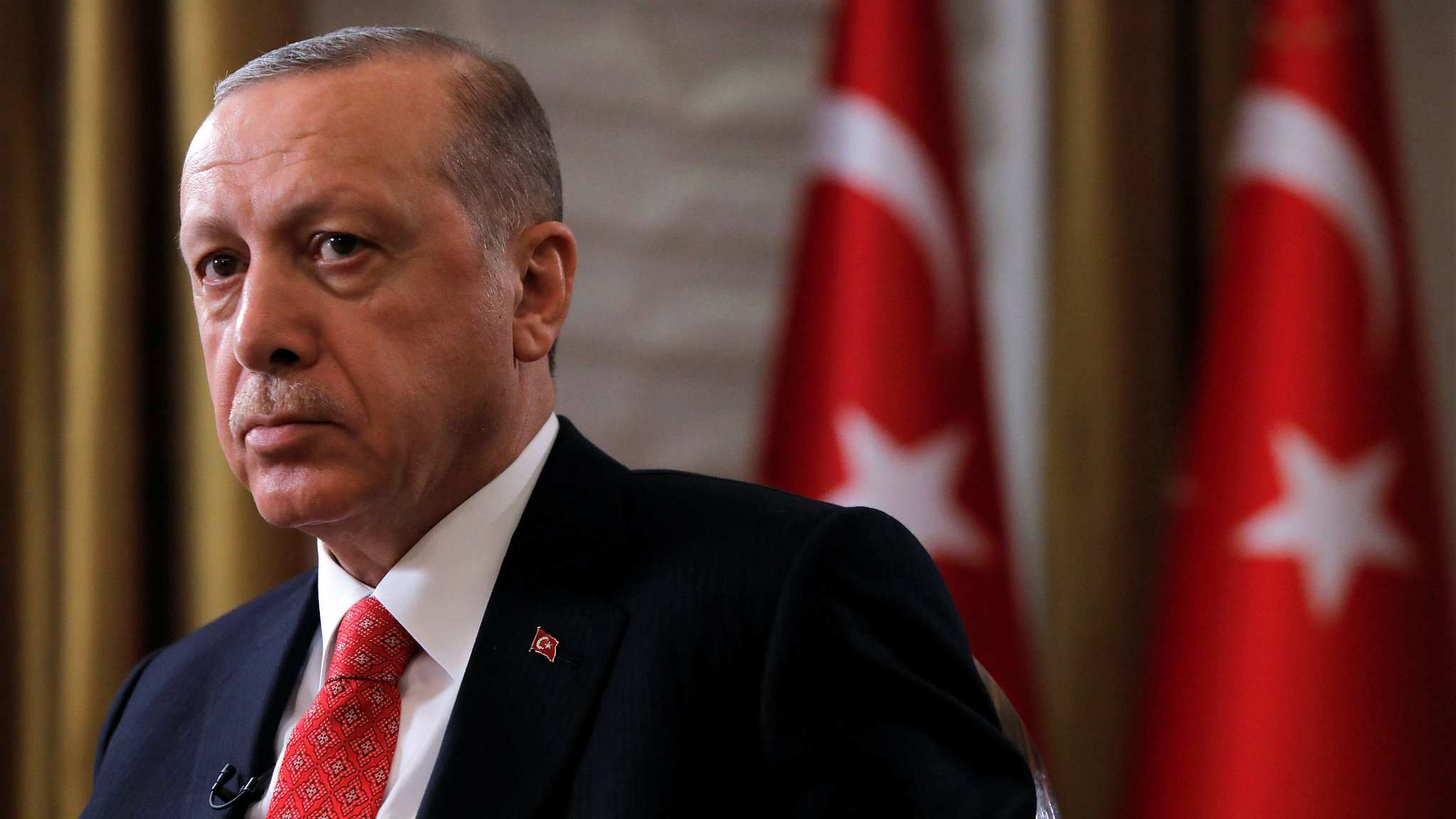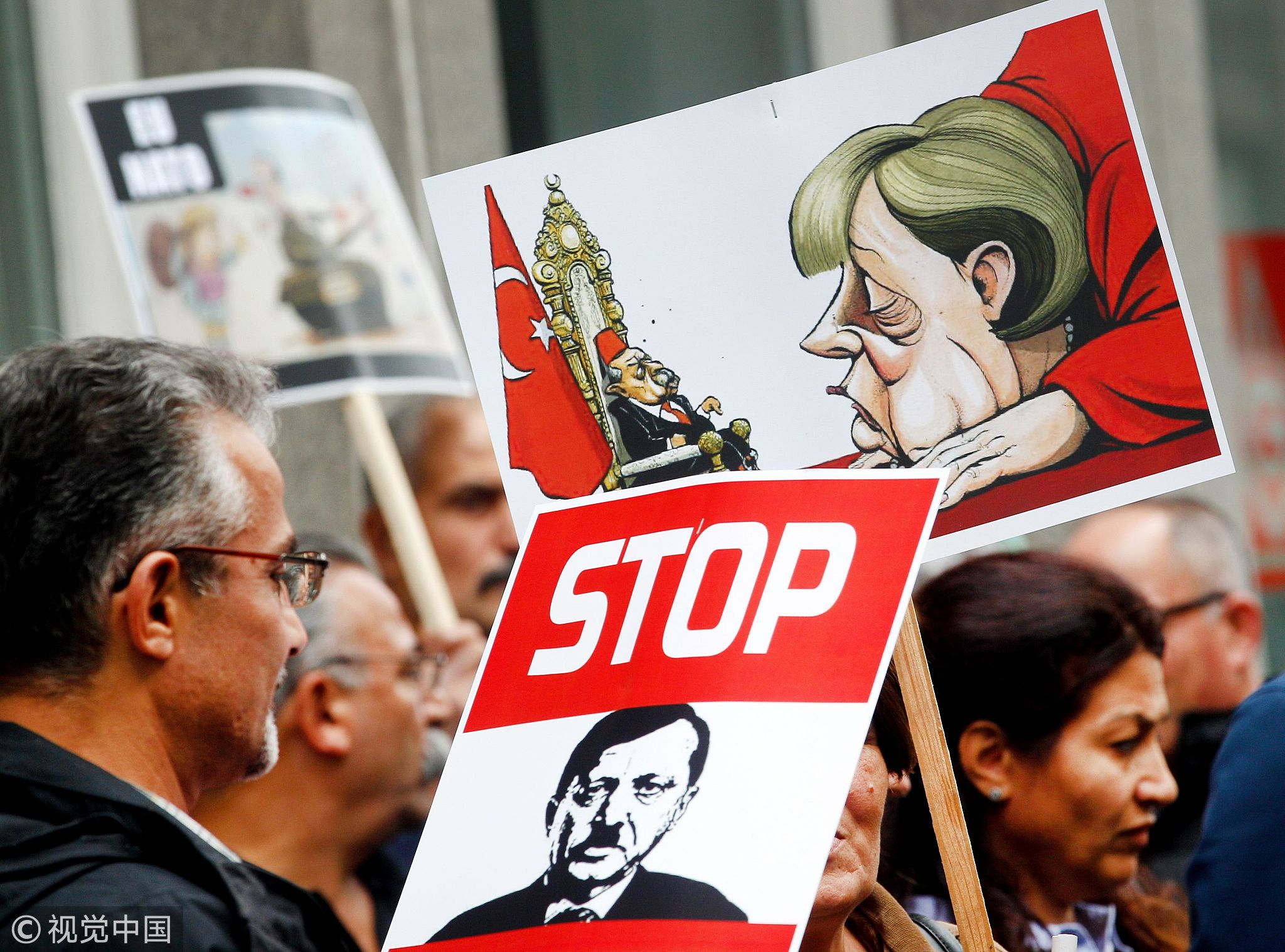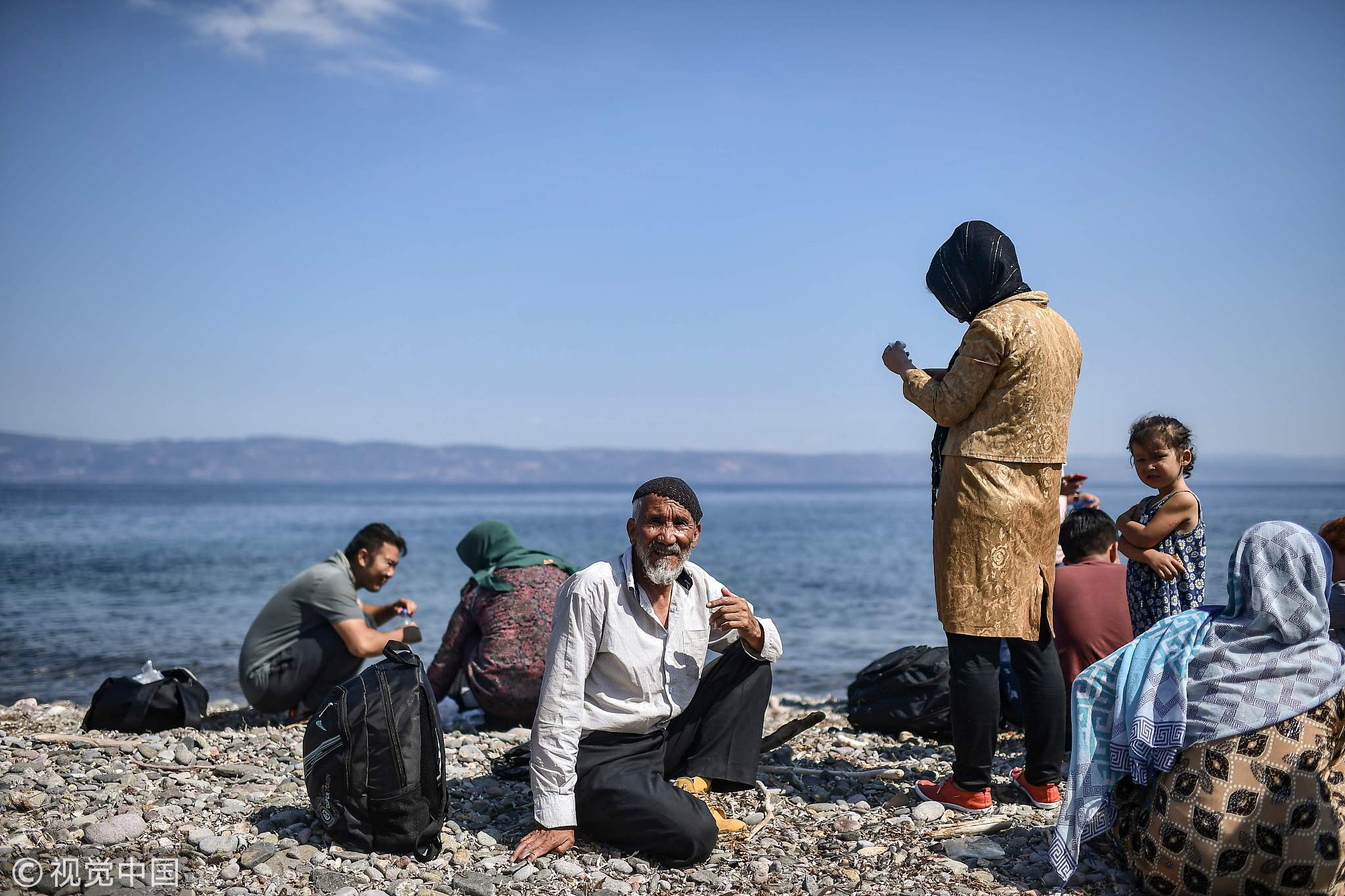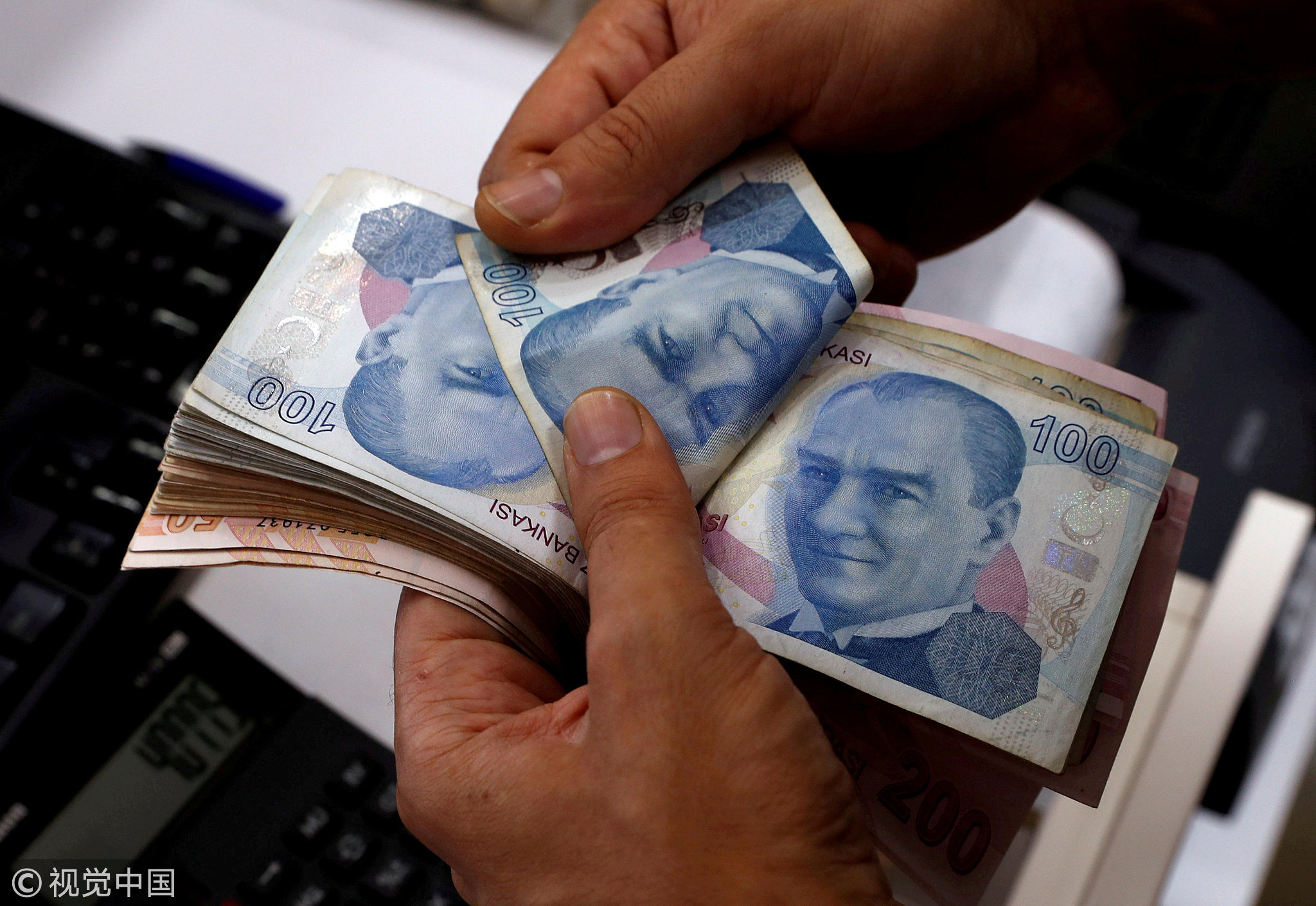
Opinions
18:03, 27-Sep-2018
Opinion: Will Erdogan's Germany visit open new stage for EU-Turkey ties?
Updated
17:29, 30-Sep-2018
Azer Hasret

Editor's note: Azer Hasret is a Baku-based Azerbaijani journalist and political commentator with more than 25 years of experience. The article reflects the author's opinion, and not necessarily the views of CGTN.
Turkish President Recep Tayyip Erdogan is visiting Germany September 28-29.
According to Deutsche Welle, "during his two-day visit to Germany, Erdogan will be received with military honors and a state banquet hosted by President Steinmeier." This means that the German state pays great importance to Erdogan's visit.
However, this does not mean that everyone is happy with the Turkish president's trip to the key member state of the European Union.
Germany-based human rights organizations have announced that they will protest against the trip. Even the opposition Alternative for Germany Party spokesperson announced that "Erdogan must remain at home."
But the Foreign Minister of Germany Heiko Maas said in a statement to Bild, a German tabloid, two months ago that he had "never been convinced by the argument that it would be better not to talk at all with difficult partners."

Members of the Kurdish community hold a demonstration in Duesseldorf, western Germany on September 22, 2018, against the visit of Turkish President Recep Tayyip Erdogan. /VCG Photo
Members of the Kurdish community hold a demonstration in Duesseldorf, western Germany on September 22, 2018, against the visit of Turkish President Recep Tayyip Erdogan. /VCG Photo
This means that instead of the protests of opposition and human rights groups, Erdogan will be honored by the German federal government and lead discussions on several vital issues.
The visit will open a new phase in German-Turkish relations which have been tense since the 2016 coup d'etat attempt after which Turkey incarcerated several German citizens.
Members of the German government and opposition parties in the Bundestag, the German federal parliament, were highly critical of Turkey's stance towards the so-called "witch hunt," blaming Erdogan for everything, including a deteriorating human rights situation.
It is obvious that Germany needs Turkey as a reliable partner in order to solve several critical issues. One of the most important is the issue of refugees. As tensions continue in the region of the Middle East and Northern Africa, thousands of refugees try to move to Europe through Turkey every day.
If Turkey lets the refugees continue to, mostly, enter Germany, this will cause serious problems for the latter. That's why the German government keeps in mind this fact, and, instead of criticism by human rights groups, is open to dialogue with Erdogan's government.
Another vital issue is the partnership in NATO. As two key members of the organization, Germany and Turkey act together in different geographies of the world in peacemaking missions and, of course, are allied to overcome threats caused by common enemies.
This means they need each other and that is one more factor causing Germany's openness to Turkey and its leader. Of course, all that is written above is a German perspective. But what about Turkey's?
According to widespread reports, Erdogan is going to take part in the opening of the biggest mosque in Europe built by Turkish migrants in the city of Cologne.
One more important point: Erdogan is going to have a meeting with leading German business CEOs. In terms of the falling Turkish currency and deteriorating economy, this step is intensely needed as Turkey seeks new investment.

Migrants from Afghanistan arrive on the Greek Mediterranean island of Lesbos after crossing the Aegean Sea from Turkey on a dinghy, August 6, 2018. /VCG Photo
Migrants from Afghanistan arrive on the Greek Mediterranean island of Lesbos after crossing the Aegean Sea from Turkey on a dinghy, August 6, 2018. /VCG Photo
Today, more than 7,500 German business entities are involved in Turkey's economy. Only in 2017, bilateral trade volume between the two countries reached 43.6 billion US dollars and it seems, after getting together with German businesses, Erdogan intends to raise this figure.
This seems possible, taking into consideration the planned mission of German business people to Turkey in October 2018. We shall add that this business delegation is to be led by German Economy and Energy Minister Peter Altmeier.
In this respect, Erdogan's visit itself to Germany can be seen as opening a new phase in German-Turkish collaboration.
And all of this is happening in light of deteriorating tensions between the main ally of both countries. Germany is free in its foreign policy, but somehow is obliged to take US interests into consideration as well.
If so, this means that Erdogan can be seen as adjusting his foreign policy towards the West, mainly the US and the European Union. If this happens, Turkey's economy might go up again and EU countries will be interested in investing in Turkey.

A money changer counts Turkish lira banknotes at a currency exchange office in Istanbul, Turkey, August 2, 2018. /VCG Photo
A money changer counts Turkish lira banknotes at a currency exchange office in Istanbul, Turkey, August 2, 2018. /VCG Photo
Thus, given that Turkey is facing strained relations with the US and a currency crisis, will Erdogan's visit promote bilateral ties, bring stimulus to its domestic economy and even enhance Turkish relations with the EU?
The answer will be unveiled in due course.
(If you want to contribute and have a specific expertise, please contact us at opinions@cgtn.com)

SITEMAP
Copyright © 2018 CGTN. Beijing ICP prepared NO.16065310-3
Copyright © 2018 CGTN. Beijing ICP prepared NO.16065310-3